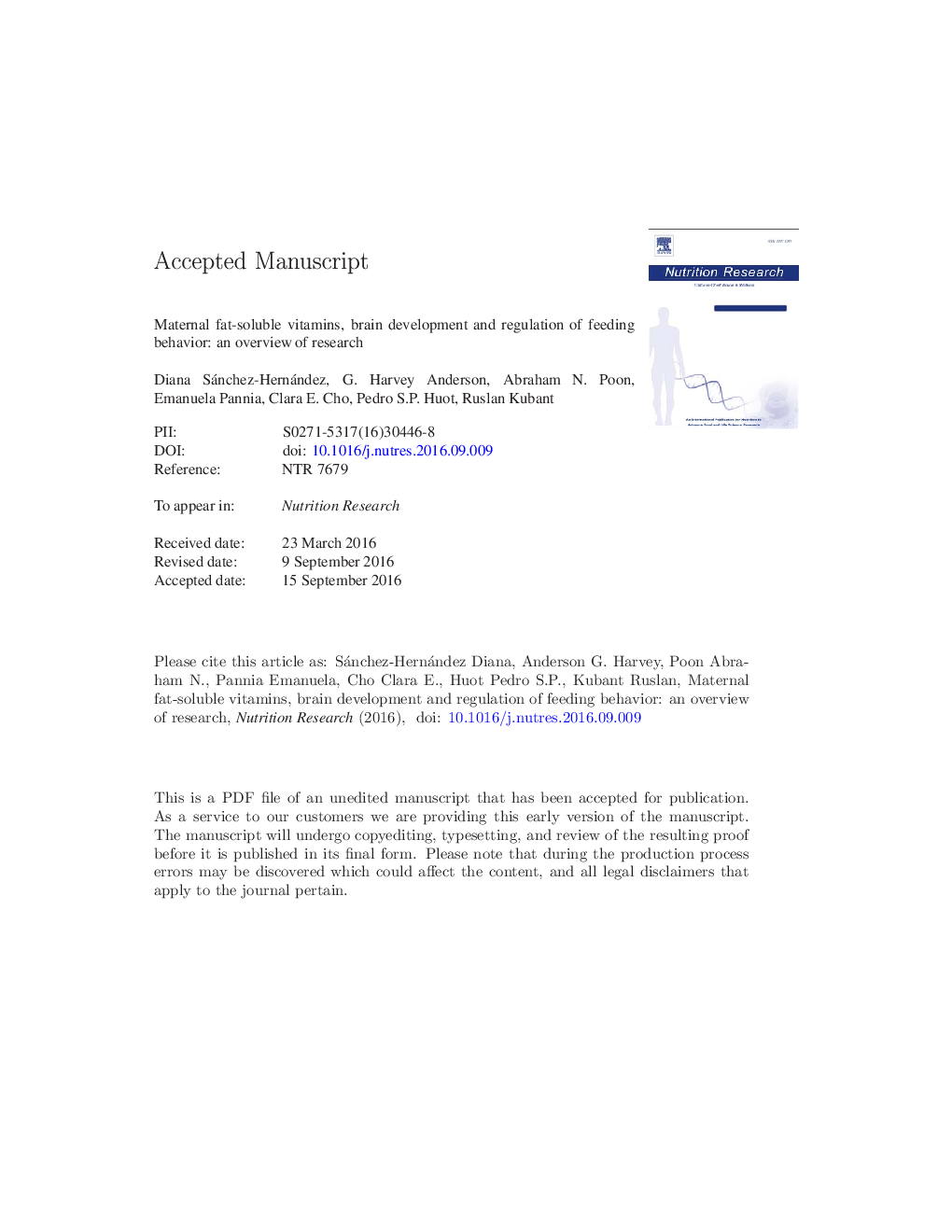| Article ID | Journal | Published Year | Pages | File Type |
|---|---|---|---|---|
| 5588712 | Nutrition Research | 2016 | 35 Pages |
Abstract
Recent research shows a link between vitamin intake during pregnancy and offspring health. Inadequate intakes of water-soluble vitamins during pregnancy lead to obesity and characteristics of the metabolic syndrome, concurrent with altered developments in food intake regulatory pathways. Few studies, however, have reported on the effects of fat-soluble vitamins (A, D, E, and K) on the development of food intake regulatory pathways. The majority of studies to date have focused on associations between inadequate and high intakes of folic acid and vitamin D and neurocognitive development of the offspring. Hence, the objective of this review is to present an evaluation of the role of maternal vitamins A, D, E, and K in brain development and function of neural pathways that regulate feeding behaviors. PubMed and Google Scholar were searched from 1975 through September, 2016. Most studies supporting a role for fat-soluble vitamins in regulating brain development and associated behaviors have been conducted in animal and cell models, leaving uncertain their relevance to neurocognitive development and function in humans. Nevertheless, although current research on defining the role of maternal fat-soluble vitamins in offspring's brain development is limited, it is sufficient to warrant further investigations on their impact when intake amounts during pregnancy are not only inadequate but also exceed requirements.
Keywords
DMNVMNLHACARTRetinoid X receptorNTSVTARXRDRDDATPNDAgRPNPYVitamin K-dependent proteinsPOMCRARsApoeapolipoprotein EDopamine transporterRetinoic acidBehaviorgestational daypostnatal dayArcPVNIntakeBrainventral tegmental areaVentromedial nucleus of the hypothalamusnucleus of the solitary tractarcuate nucleusdorsomedial nucleus of the hypothalamuslateral hypothalamusVitamin EVitamin DVitamin KVitamin Aproopiomelanocortinagouti-related peptidegrowth arrest-specific gene 6Gas6Dopamine receptorretinoic acid receptorsNeuropeptide Y
Related Topics
Life Sciences
Biochemistry, Genetics and Molecular Biology
Endocrinology
Authors
Diana Sánchez-Hernández, G. Harvey Anderson, Abraham N. Poon, Emanuela Pannia, Clara E. Cho, Pedro S.P. Huot, Ruslan Kubant,
